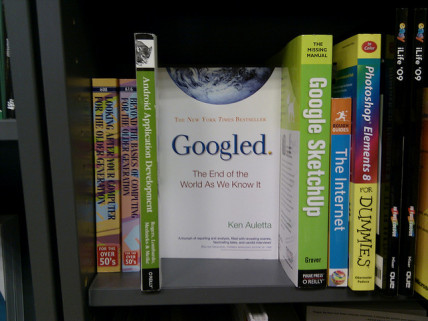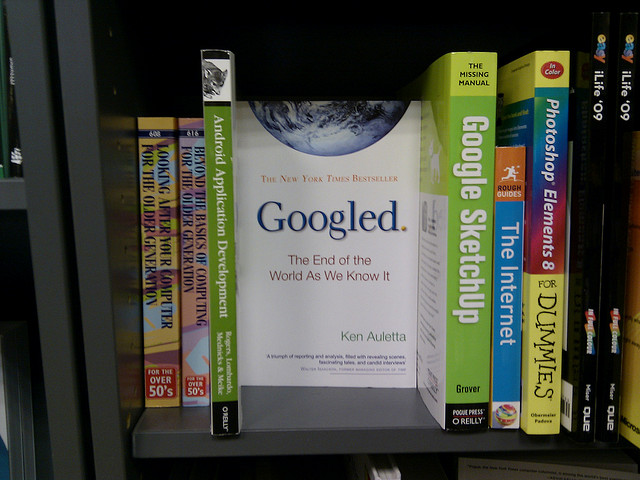
Googled: The End of the World As We Know it. Photograph by Clive Darra
As a recent post noted, net neutrality is under threat in France, with ISPs like Free asking Google to pay extra for delivery of its traffic. According to this post on the Forbes Web site, Google has already agreed to pay the French telecoms company Orange in precisely this way. As well as damaging the whole principle of net neutrality, something that Google has been championing for many years, this would seem to be a pretty bad business decision. After all, if Orange is now getting paid to carry Google’s traffic, why shouldn’t every other telecom company out there also receive money for delivering Google’s services?
It turns out that there are some very specific reasons why Google might have taken this surprising step, as Forbes explains:
Orange have implied their strong market position in Africa provided them sufficient leverage in the discussions with Google.
The African market is currently making the switch from feature phones with limited data access, to low-cost smartphones that provide far greater access to the internet and web services. Low-cost smartphones that are predominantly powered by Android. Google wants the emerging market to be running their OS so they can effectively monetize the continent. What they don’t want is another platform becoming established, such as Nokia’s low-cost Windows Phones or the upcoming Blackberry 10 devices.
This is really about the African market, then. As the analysis above notes, Google wants Android to become established there as successfully as it has elsewhere in the world. If it had refused to do a deal with Orange, which is apparently a major player in this region, there was a danger that Nokia or RIM could have taken advantage of the situation. Even though the payment is nominally about Net traffic, it’s probably really about Google keeping a dominant telecom company sweet.
In most other parts of the world, Android is already established as the leading smartphone platform, so Google won’t need to make similar deals. That doesn’t mean that telecoms and ISPs won’t demand them, but their bargaining position will generally be much weaker than Orange’s. Google will probably be able to refuse without risking too much, secure in the knowledge that Internet users won’t be best pleased with their ISPs if they can’t access Gmail, or YouTube becomes unbearably laggy.
But even if the Orange deal is a special case, it’s still bad news for the Internet. Google has clearly signaled that net neutrality is not sacrosanct, and that it is quite prepared to abandon it when necessary.
Written by Glyn Moody
Follow Glyn Moody @glynmoody on Twitter or identi.ca, and on Google+



